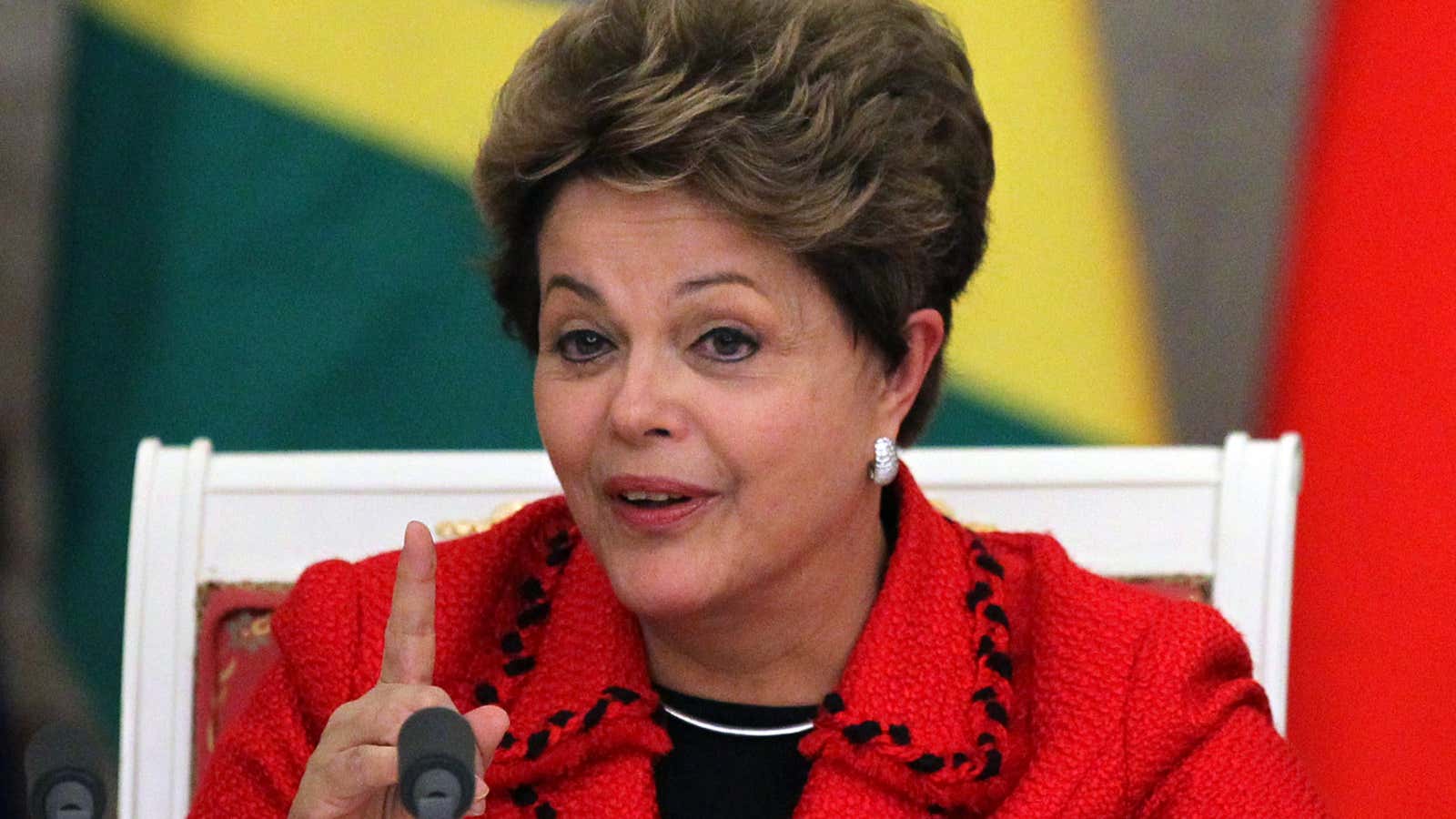Brazil is owed some $900 million from 12 African countries, but no longer. Brazilian president Dilma Rousseff announced over the weekend that her country would cancel the bulk of the debt, most of it dating from the 1970s, and restructure the rest. The recent pardon was made “to maintain a special relationship with Africa,” which “is strategic for Brazil’s foreign policy,” said president Rousseff’s spokesperson, Thomas Traumann.
It’s also strategic for Brazil’s wallet.
If the nearly one billion forgone sounds like a lot, it shouldn’t; this is merely Brazil making a bet that nicing up to Africa now will bring billions to Brazil down the road. Over the past dozen years, Brazil has increased trade with the region more than five-fold, from $5 billion in 2000 to $26.5 billion last year. And Brazil believes it can profit further from Africa. Brazilian companies already have large stakes in oil and mining in the continent, but the country is placing a good deal of hope in Africa’s agricultural potential, too. “Brazil has great expertise in what we call tropicalising European crops. The idea is how to transfer that technology from Brazil to other African countries,” Traumann said (paywall).
Pardoning African debt may be aimed at helping Brazil’s image in the continent a little, too. Last month in Mozambique, protestors who had been displaced by a Brazilian coal mine blocked the mine’s entrance after settling on arid lands and suffering food shortages. But the goal could also be to make it easier for African countries to invest in the kinds of infrastructure Brazilian firms need to operate there. Mining giant Vale was forced to cut its export target by 30% in the region after infrastructural shortcomings paralyzed its shipping ability.
“There’s a growing sense that Africa is Brazil’s frontier,” Historian José Davila told the New York Times last year. “Brazil is in the privileged position of finally reaching the institutional capacity to do this.” $900 million in pardoned debt isn’t a bad start. Especially considering that nearly 80% of it is held by oil-rich Tanzania and the Republic of the Congo, and by copper-rich Zambia.
